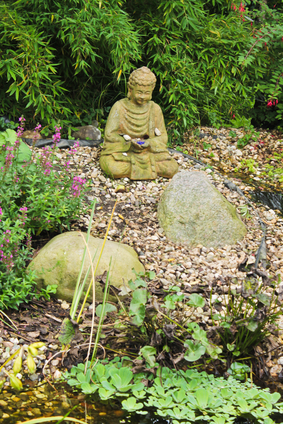To Life: Friendships
L’Chaim. To life!
Several years ago, my mother shared a story about a dear friend’s mother dying the day before the friend’s daughter was getting married. In Judaism, those who pass are typically buried with 24 hours. This is dictated by the Torah. Kabbalah teachings also suggest that immediate burial brings closure to the soul in terms of its relationship to the physical body, thereby allowing it to pass over. In this particular situation, the rabbi told my mother’s friend to have the wedding first, and then the funeral.
Life before death.
Although my mother told me this story within another context, I relate it to connections and their growing importance in our lives as we age.
Data from a study published in Psychological Review in 2000 suggests that women’s inherent response to stress is to ‘tend and befriend’ rather than ‘fight or flight;’ in other words, there is a biologically-defined strategy or pattern that involves caring for offspring, joining social groups, and gravitating towards friends under stressful circumstances. This is driven, at least in part, by the release of the hormone oxytocin, which coupled with endogenous opioids and other sex hormones, promotes maternal behavior as an alternative to the male-oriented fight and flee response.
Findings from the Nurses Health Study have also shown that friendships help prevent the development of physical impairment and facilitate a more joyful existence. What’s more, having a strong social network can lower blood pressure and heart rate and improve cholesterol levels.
Our community is ever more important as we begin to lose family members to illness, our children begin their own journeys and our hormones start to wreak havoc on our bodies and our minds. Nature has provided us with a built-in prompt to maintain those ever important bonds. Our inherent tendency to nurture completes the picture.
It appears that as women, we possess the strongest alternative strategy to aging in existence. Our friends.
L’chaim.
Read MoreNewsflash: For better health, accentuate the positive!
Inflammation. It’s our bodies’ revenge in response to daily habits and exposure to stressors. Left unchecked, an increase in inflammatory markers in the bloodstream significantly increases the risk for chronic diseases and death. Increasingly, researchers are pointing to psychological distress — factors like hostility and depression — as playing a key role in inflammation. Yet, there is a silver lining to this story: positivity. In fact, Penn State researchers are reporting that they have found evidence supporting an association between mental wellbeing (e.g. positive social relationships, purpose in life and positive emotions) and lower levels of inflammation throughout the body.
Until now, most of the research in this area have relied on measures that don’t necessarily fully reflect emotional and stress in daily life. But these daily stressors are important and appear to affect physical functioning in the short term and over time, accumulate to wreak havoc on our health. Research has also fallen short when it comes to the benefits of minor positive events — called uplifts — that occur during daily; examples include dining with a friend, sharing a good laugh or taking a leisurely walk.
Yet, new study findings show that experiencing daily positive events at work, at home, within your network and via interactions can lower the levels of inflammatory markers, namely interleukin-6 (IL-6) and C-reactive protein. In women, these daily uplifts appear to also affect the levels of fibrinogen, a blood protein that contributes to clotting. After the researchers took potential factors that might skew the results into account, such as race and income, only IL-6 continued to be significantly and beneficially affected by these daily positive events.
Let’s look at IL-6 for a minute. In certain contexts like exercise or in the face of infection, IL-6 actually has anti-inflammatory properties. Yet, when it comes to psychological stress, IL-6 becomes pro-inflammatory, which is why finding ways to counteract its Dr. Jekyll/Mr. Hyde actions is so important.
Back to positive, daily events. The type that had the most impact were interpersonal positive events, particularly in women. I’ve written previously on the importance of friendships and social support as we grow older and these data help to bolster the evidence supporting this.
What’s lacking here is definitive cause and effect. But an association has been demonstrated and it’s never bad to step back, take stock and accentuate the positive on a daily basis. Not only does that strategy work to help our mental state but it may also help our bodies ward off disease.
Read More
Road trippin – let’s go places!
I have written a lot about the power of friendships to wash away stress and the everyday grind. So, when Shift Communications offered me a Toyota Venza for a week, I jumped at the opportunity to grab a gal pal, hit the road for the holiday weekend and refresh.
The 2014 Toyota Venza Limited AWD has a V6 engine with great pick up and good handling around curves. I drive a luxury car so I’m a wee bit picky when it comes to both but surprisingly, the Venza did not disappoint as we hurried to get out of Dodge for the windy Virginia countryside ahead of traffic and in enough time to beat Hurricane Arthur. And as skeptical as I might have been, I am now a convert.
A mid-size SUV, the Venza is still roomy enough for a couple of women who really couldn’t decide what clothing to bring so as usual, packing took on a mind of its own. In other words, lots of clothes for a short weekend but lots of options as well! After all, how do you pack properly for antiquing, hiking, fine dining and a few trips to buy Virginia wine?! #letsgoplaces!
If you find yourself in the Charlottesville area, home to Jefferson’s Monticello and the University of Virginia, look for accommodations off the beaten path. We lucked out with Bailey’s Retreat, four separate cottages perched high above the Brown Gap Valley but only 9 miles or so from downtown, close enough to the entrance to the famous Skyline Drive in the Shenandoah Mountains and 15 miles from antiquing in Barboursville, home to the Barboursville Winery and the ruins of Virginia’s 19th Governor , James Barbour (pictured to the right).
Bailey’s Retreat is also only an hour away from the scenic Crabtree Falls, the tallest waterfall east of the Mississippi. There is a great hike at Crabtree – switchbacks all the the way up and a pleasant trip down after the hard work.
The view from the top is incredible!
Also close by and a must is the Trump Winery, which is located in the heart of Monticello Wine Trail. Mind you, I was the designated driver so I didn’t sample the wines but my friend said they were wonderful. Trump offers outdoor picnic and cafe tables and a great selection of small plates. However the true draw is the view. They’re also dog and kid friendly and appear to be the place to be on a beautiful afternoon for the locals too!
But I digress. The #Venza is a great road trippin car. Aside from a great handling around tight curves, it offers a Bluetooth, butter soft leather seats, a moon roof and a panoramic viewing panel for second row passengers (and it gets surprisingly good gas mileage to boot). I am beginning to understand why the Toyota folks are so in love with their Let’s go places tagline. It is truly a great vehicle for hitting the road on a whim when a little time with good gal pals is just what the doctor ordered!
[Disclosure: Shift Communications provided me with the 2014 Toyota Venza free of charge and with no strings attached. Along with the use of the car, they provided a drop off service, a $50 Home Depot gift certificate and a great portable chair. Thanks Shift and Thank you Toyota!]
Read MoreGuyside: Don’t sell friendship short
You know how we have little routines that we rely on in conversations? Someone brings up air travel and you have your little shpiel about it. Well, one of mine has always been that women’s relationships are like cats interacting with each other: much sizing up and marking of territory. I’ve also said that men’s friendships get formed like dogs’ — we sniff each other’s butts, then we figure out if the person in question is someone we want to play with.

Male friendship can sometimes be discounted, even by the friends themselves.
It might make a marginally funny line, but I’ve come to believe it sells both men and women short in the friendship department.
I currently don’t really have a “best friend.” There are guys that I’m close with, that I’ve been with through good times and bad times, but not a single person I’d tell people, “oh, you know ?Steve? Yeah, he’s my best friend.”
A few years ago, I had someone I considered a best friend. He and I had begun as colleagues, and had immediately gravitated to each other. My partner and his wife also got along, and we found ourselves as a foursome often, but we also were “guy friends”.
The friendship ended for a number of reasons that probably don’t really matter in this context, and anyway, I don’t think it would be right to go into them. The best way I can say it that I ended it because I was no longer comfortable with being his friend.
That was a few years ago, and since that time we’ve exchanged a few words and seen each other at a few events. It’s led to some awkwardness from time to time, probably on several people’s parts — we still share a number of friends.
And on Sunday night, we found each other at a large surprise party celebrating one of those friends’ 80th birthday, and my ex-friend found a moment to tell me that he missed the friendship. I found myself uncharacteristically incoherent, blabbed out a few loosely connected words, and made myself scarce. It was a very awkward moment for me.
I suspect that were I to reach out to reconnect, it might well be received well by my ex-friend. But even if I did, it might not work out. During the years of our ‘estrangement’, things have changed for me. As I said to someone this week, I feel as if the me he knew, who was his friend, isn’t there anymore. So even if I was willing to remake the friendship, it wouldn’t necessarily be the same friendship.
Another part of me thought about all this and wanted to dismiss the thought process itself as a bit much of a muchness, as too much rumination about a friendship. But I don’t agree with that. And I think that while it can be easy for men to think of our friendships as activity-based or transactional (hey, let’s go running, let’s go out for beers, let’s hit a concert), there’s something more to men’s friendships.
It’s easy to focus on our primary relationship — our wife, our partner, whatever the label is. I think it’s common for men to sometimes forget that there are benefits to ourselves and to the people we care about when we build stronger social bonds with other people, whether we have a best friend or a number of friends.
When it comes to emotional resilience, to mutual support, and to good psychological health, friendship is definitely NOT where you want to put all your eggs in one basket.
I miss what I had. But you can’t go back — or at least I can’t; better to build relationships that can be ones of mutual support and positive regard.
Photo: CC licenced by Flickr user Francesco Rachello
Read MoreHelp!
If you are as independent as I am, asking for help might be alien to you. Personally, I am getting better at it. But I still have the inclination to try to do something first on my own rather than rely on someone else to do for me, even if it may be detrimental.
I am having surgery today. I’ve been in significant discomfort for weeks now and that discomfort has been increasing daily. And I was going to drive myself to the procedure until my friends stepped in and took over. Don’t you think that I would realize how silly that idea was?
So, while I spend today contemplating the ‘thank goodness, folks who love me stepped in,” I challenge you to ask yourselves the following question:
When was the last time you asked for help? Better yet, how easily do you ask for and receive help?
Reading Karen Rosenthal Hilsberg’s “Lessons in Living” and her struggle to make sense of a life unraveled as her husband dies, I can’t help but reflect on a close friend who was ill several years ago. Despite a ‘take no prisoners’ attitude, he had trouble acknowledging the seriousness of his condition and even more trouble asking for support. Quite honestly, he doesn’t do too well in that department and neither do I. However, like him, I readily offer assistance to those I love and care about, whenever I can.
So, why the divide between offering and taking?
Hilsberg writes that “what I learned during this intense time of life was profound. I learned to ask for help from others.” Utilizing the mindfulness practice of the Zen Master, Buddhist monk and scholar Thich Nhat Hanh and the Buddhist Master Thich Phuoc Tinh, she says that she discovered that asking for help really wasn’t much different than providing it, that the helper and ‘helpee’ were intertwined, unable to exist without the other. By allowing assistance, she was able to provide others who cared about her and her family an opportunity to “be of service and to practice generosity” and in doing so, make a shift away trying to do everything on her own. Most importantly, by reflecting on how much she personally enjoyed being of service when loved ones needed her, she was able to accept how appropriate and okay it was to actually ask for help from others — to allow them to “do” as much as she did. The result? Her “wellbeing improved as [she] felt [her] burden shared by many hands.”
As caretakers, many women often do not adapt well to being on the “receiving end.” And yet, most of us are aware of the importance of social ties, friendships and support to our health and wellbeing, particularly as we age. So why do we find it so difficult to ask for and receive help? How do we acknowledge that be cared for does not equate to losing power or control but actually improves outlook, wellbeing, and ability to deal with any challenges that we might be facing, that allowing others to “do” empowers and does not ‘de-power?’ Is it fear of refusal? Or fear of letting go?
Mastering the art of asking for help is difficult. However, it behooves us to do so, not only for our wellbeing but for the wellbeing of those around us who wish to help.
My friend deserved the kind of care that he has provided to others in his life for most of his life.
Guess what?
So do I.
And so do you.













